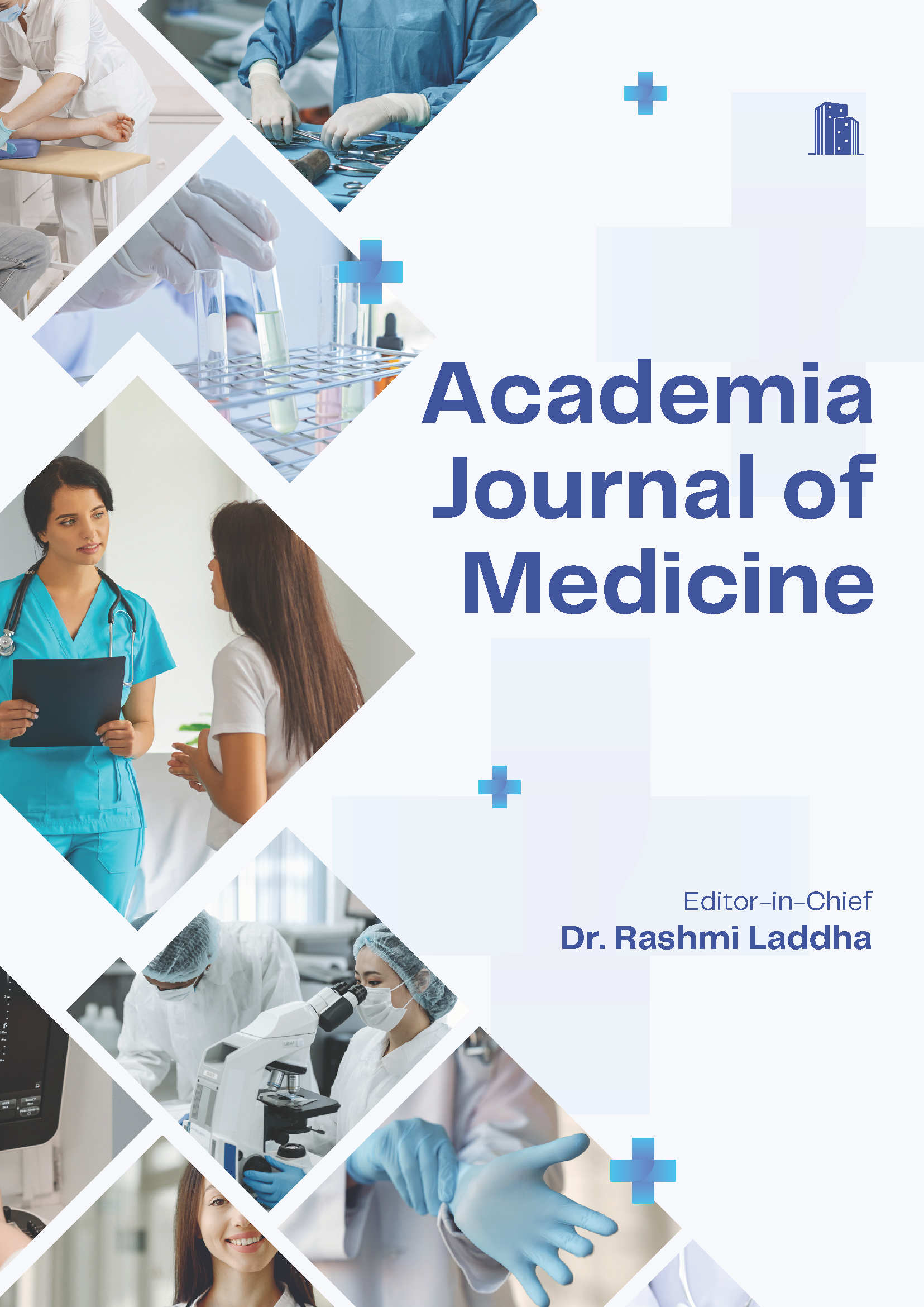Clinical Outcome of Vitamin D Supplementation in Moderate and Severe COVID-19 Patients: A Randomized Clinical Trial
Keywords:
COVID-19, Vitamin D, Supplementation, Clinical Outcomes, Randomized Clinical Trial, Tertiary Care Hospital, Inflammatory Markers, Steroid-Sparing EffectAbstract
The COVID-19 pandemic has posed a major global health challenge, especially for individuals with underlying health issues. This study aimed to assess the clinical outcomes of vitamin D supplementation in patients with moderate to severe COVID-19 in a tertiary care hospital through a randomized clinical trial. Sixty-two SARS-CoV-2 positive patients were enrolled and divided into intervention (vitamin D supplementation) and control groups.
Downloads
References
World Health Organization. (n.d.). Coronavirus disease (COVID-
19) situation report. World Health Organization.
Holick, M. F. (2007). Vitamin D deficiency. New England Journal
of Medicine, 357(3), 266–281. https://doi.org/10.1056/
NEJMra070553
Grant, W. B., Lahore, H., McDonnell, S. L., Baggerly, C. A.,
French, C. B., Aliano, J. L., & Bhattoa, H. P. (2020). Evidence
that vitamin D supplementation could reduce the risk of
influenza and COVID-19 infections and deaths. Nutrients,
12(4), 988. https://doi.org/10.3390/nu12040988
Dong, E., Du, H., & Gardner, L. (2020). An interactive webbased
dashboard to track COVID-19 in real time. Lancet
Infectious Diseases, 20(5), 533–534. https://doi.org/10.1016/
S1473-3099(20)30120-1
Chen, N., Zhou, M., Dong, X., Qu, J., Gong, F., Han, Y., Qiu,
Y., Wang, J., Liu, Y., Wei, Y., et al. (2020). Epidemiological
and clinical characteristics of 99 cases of 2019 novel coronavirus
pneumonia in Wuhan, China: A descriptive study.
The Lancet, 395(10223), 507–513. https://doi.org/10.1016/
S0140-6736(20)30211-7
Yang, J., Zheng, Y., Gou, X., Pu, K., Chen, Z., Guo, Q., Ji, R., Wang,
H., Wang, Y., & Zhou, Y.-N. (2020). Prevalence of comorbidities
and its effects in patients infected with SARS-CoV-2: A
systematic review and meta-analysis. International Journal
of Infectious Diseases, 94, 91–95. https://doi.org/10.1016/j.
ijid.2020.03.017
Shi, Y., Yu, X., Zhao, H., Wang, H., Zhao, R., & Sheng, J. (2020).
Host susceptibility to severe COVID-19 and establishment
of a host risk score: Findings of 487 cases outside Wuhan.
Critical Care, 24(1), 1–4. https://doi.org/10.1186/s13054-
020-2833-7
Mohan, M., Cherian, J. J., & Sharma, A. (2020). Exploring links
between vitamin D deficiency and COVID-19. PLOS
Pathogens. https://doi.org/10.1371/journal.ppat.1008874
Alvarez-Rodriguez, L., Lopez-Hoyos, M., Garcia-Unzueta, M.,
Amado, J. A., Cacho, P. M., & Martinez-Taboada, V. M.
(2012). Age and low levels of circulating vitamin D are associated
with impaired innate immune function. Journal of
Leukocyte Biology, 91(5), 829–838. https://doi.org/10.1189/
jlb.1011523
